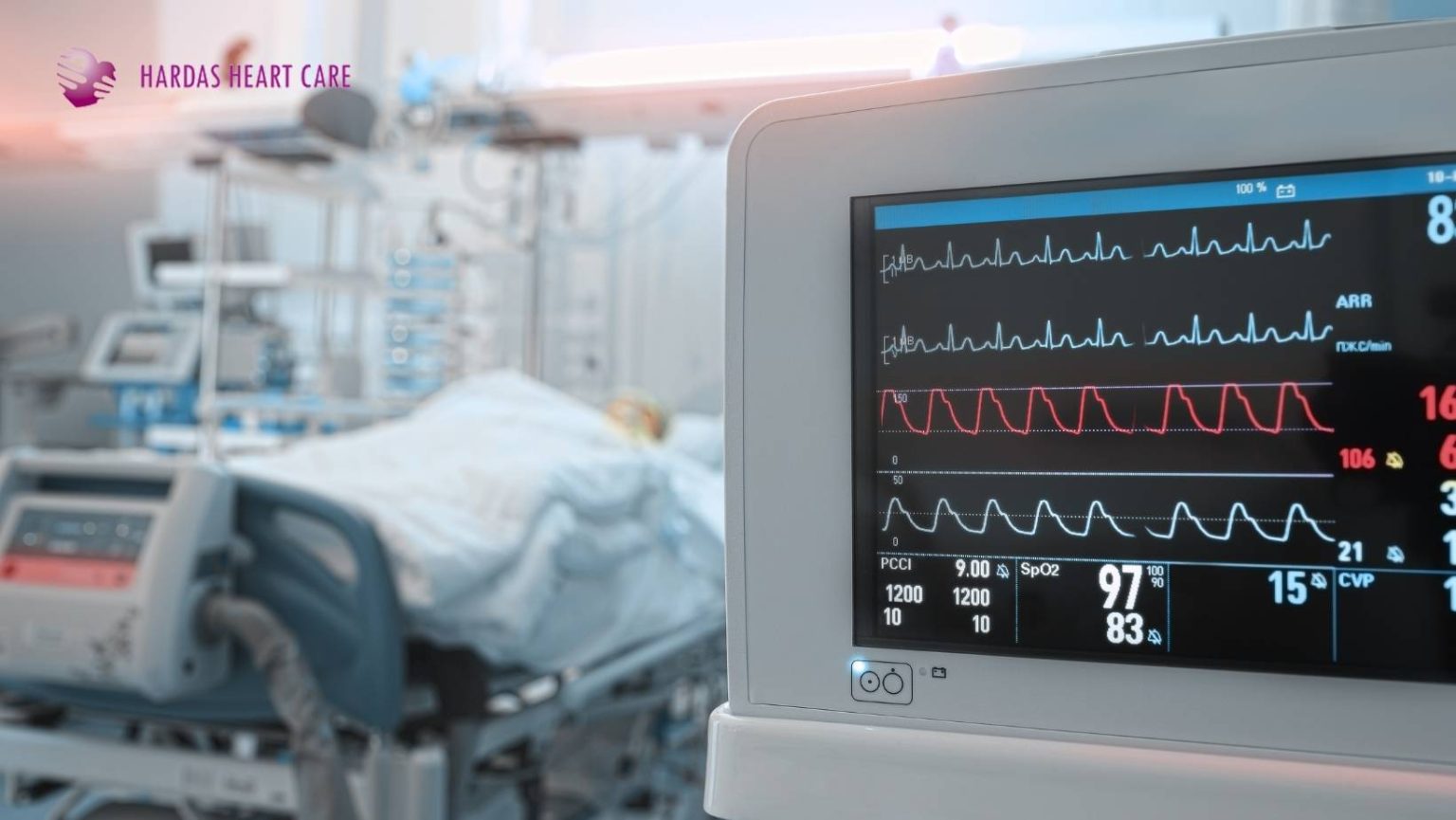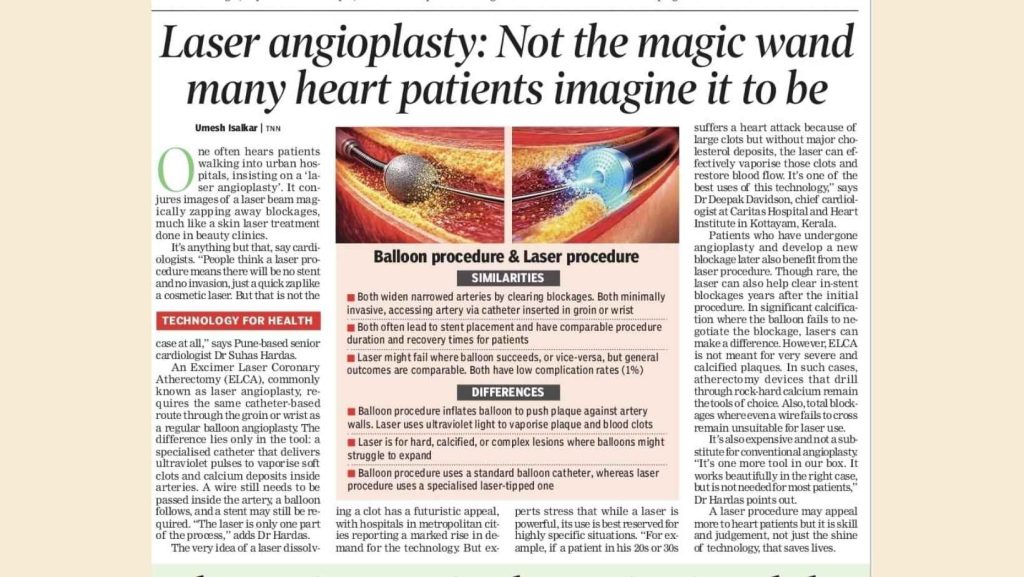When it comes to serious medical emergencies, many people imagine bustling hospital corridors—but few see what happens once the doors to the Intensive Care Unit (ICU) close. As a heart specialist in Pune, I often meet patients and families who feel anxious, uncertain and even intimidated by the idea of the ICU. The aim of this blog is simple: to peel back the curtain and offer a clear, reassuring, and informative account of what happens in the ICU, why it matters, and how it connects to heart-care and critical care.
This article will help patients, families and anyone interested in critical care feel more informed and empowered.
1. What is an ICU and Why Does It Exist?
The Intensive Care Unit is a specialised hospital department reserved for patients who are critically ill, whose vital functions need constant monitoring and immediate intervention. As the original article emphasises, the ICU’s primary goal is to ensure stability when vital organs such as the lungs or kidneys are failing or when major life-threatening conditions occur.
In simpler terms: when “normal ward” care isn’t enough, the ICU is where advanced monitoring, life-support and rapid decisions happen around the clock.
Why it matters for cardiac patients
For patients with heart conditions—be it severe heart failure, complications after cardiac surgery, arrhythmias or other emergencies—the ICU is often the next step when the heart, lungs and circulatory system need intensive care in unison. As a heart specialist, I often collaborate with intensivists (ICU doctors) to ensure seamless care for such patients.
Key functions of the ICU
- Continuous monitoring of vital signs: heart rate, blood pressure, oxygen saturation, respiratory rate.
- Life-support systems: mechanical ventilators, dialysis machines, extracorporeal support when organs fail.
- Specialist teams: Intensivists, critical-care nurses, allied health professionals, working 24/7.
- Rapid response: Many decisions need to be made within minutes or even seconds.
- Multi-organ coordination: For example, heart failure may require ventilator support, dialysis, hemodynamic monitoring—all under one roof.
2. Who Needs ICU Care?
ICUs cater to a varied range of patients, not only those with cardiac issues. Here are some common scenarios:
- Patients with severe respiratory failure, needing mechanical ventilation.
- Those with kidney failure requiring dialysis or continuous renal replacement therapies.
- Patients who have had major surgery, especially cardiac, neuro or trauma operations.
- Individuals suffering from sepsis or multi-organ failure.
- People with acute cardiac events: cardiogenic shock, post-infarction complications, high-risk arrhythmias.
Dr. Suhas Hardas states: “When it comes to life-threatening medical emergencies, every second counts.”
For heart-care patients in Pune, being aware of when ICU care may be required can reduce fear and improve collaboration between patient, family and medical team.
3. Inside the ICU: What Happens Behind Those Doors
a) Continuous Monitoring & Technology
In the ICU environment, patients are surrounded by a constellation of machines and alarms. Vital signs are tracked minute by minute, often in real-time via central monitoring systems. The article explains how ventilators, infusion pumps, dialysis machines and ECMO (extracorporeal membrane oxygenation) become part of the day-to-day in a top ICU.
For example, a patient with severe heart failure and pulmonary oedema may need ventilator support while the heart team stabilises them. Or a patient with postoperative complications after a bypass surgery may require dialysis, hemodynamic monitoring and specialist input.
b) Life-Support and Organ Support Systems
When one or more of the body’s critical systems falter, the ICU steps in with support systems. These may include:
- Mechanical ventilation: assisting or taking over breathing.
- Hemodynamic monitoring: arterial lines, central venous lines to manage blood pressure and cardiac output.
- Renal replacement therapy: for kidneys failing to filter waste.
- ECMO: when heart or lungs cannot maintain oxygenation or circulation on their own.
- Infusion pumps and IV medications: for sedation, vasopressors, antibiotics, fluid management.
This article highlights: “Advanced life-support systems such as ventilators, dialysis and extracorporeal support are integral to modern ICUs.”
c) Teamwork and Coordination
Behind the scenes, the ICU is a hive of cooperation. Intensivists coordinate with specialists: cardiologists, neurologists, nephrologists, pulmonologists, trauma teams. Nurses are specially trained, staffing ratios are higher (fewer patients per nurse), and care is more intensive.
For a heart specialist in Pune collaborating with an ICU, this coordination means that we can plan the pathway: from cardiac event → ICU stabilisation → step-down care → rehabilitation.
d) Beyond the Machines: Human Touch
While the technology is impressive, the human dimension cannot be overlooked. Patients in the ICU are often sedated or unable to communicate. Families may feel powerless. The original article notes the emotional burden on patients and caregivers, and how open communication is key.
As a heart specialist, I emphasise to families: the machinery is important—but the goals and values matter too. What does the patient want? What is realistic? Which interventions make sense? Which may prolong suffering without benefit?
4. ICU for Heart Patients: Special Considerations
When the heart is the main organ in distress, ICU care has some unique angles.
Post-cardiac surgery
Patients who undergo procedures like coronary artery bypass grafting (CABG), valve replacements or complex interventions often go directly to the cardiac ICU (CICU). In this setting:
- Bleeding, arrhythmias, low cardiac output are key risks.
- The ICU team monitors heart rhythm, pressures, chest drains, ventilation.
- Early mobilisation and coordinated care with physiotherapy begin even in ICU.
Cardiogenic shock and acute heart failure
In critical heart failure, the heart cannot pump effectively. ICU support may include:
- Intra-aortic balloon pump (IABP) or other mechanical circulatory support.
- ECMO in extreme cases.
- Simultaneous support for lungs, kidneys, liver which may also suffer.
Arrhythmia storms and cardiac arrest
For patients having severe arrhythmias or post-cardiac arrest care:
- Therapeutic hypothermia protocols may be followed.
- Neurological monitoring becomes important.
- Coordination with neuro-intensive care if brain injury is suspected.
Why location and access matter
For someone looking for heart care in Pune, selecting a centre with a well-equipped ICU is crucial. The original article about critical care units in Pune underlines that advanced infrastructure + expert staff make a significant difference.
As your heart specialist in Pune, I work with centres that have the required ICU backup—this means that from emergency to recovery, you’re covered.
5. What Families Should Know and Ask
If a loved one is admitted to the ICU, preparation, understanding and communication help reduce anxiety. Here are some practical pointers:
Prepare mentally
- The ICU can feel intimidating: lots of machines, alarms, restricted visits.
- Understand that this phase is about stabilisation, not long-term recovery yet.
- Ask the team: What is the goal of ICU care in my loved one’s case? (e.g., stabilize heart rhythm, reduce lung stress, manage kidney failure)
Ask the right questions
- Who is the lead intensivist? How often will the cardiologist or heart specialist visit?
- What monitoring is in place? Which machines will be used?
- What are the visiting hours and policies? Can you get regular updates?
- What outcome does the team expect: short stay or prolonged ICU time?
- What are the possible scenarios if things don’t go as planned?
Stay involved
- Request regular briefings (daily rounds).
- Some ICUs allow family to observe via video or windows—ask.
- Take care of your own mental health—stress impairs your ability to support.
- Keep a journal: what was told, what happened, who asked what.
After ICU: What to expect
- Transition to a step-down ward once stable.
- Rehabilitation: especially for heart patients—physio, occupational therapy, counselling.
- Return home with a clear care-plan and follow-up with the heart specialist.
- Emotional support remains important—for patient and family.
6. The Hidden Challenges of ICU Care
Infection risk & complexity
ICUs carry higher risk of hospital-acquired infections. Hence strict protocols, sterilisation, isolation zones and vigilant nursing are critical. The original article on critical care highlights this as a major factor.
Resource intensity & cost
ICU care is resource-heavy: advanced equipment, specialist staff, high monitoring levels. Patients and families should discuss cost implications, insurance, and expected length of stay early.
Emotional toll
Not just for the patient, but for families and staff. The ICU team deals with very high-stakes decisions, and families often face uncertainty. The article underscores the need for psychological support.
Ethical considerations
Sometimes care may reach a point where prognosis is poor. Discussions about goals of care, end-of-life decisions, advanced directives become relevant—even in cardiac units.
7. How to Choose the Right Hospital/ICU for Heart-Care in Pune
As a heart specialist in Pune, I recommend the following checklist when choosing a hospital with ICU backup:
- Is there an in-house cardiac ICU or multidisciplinary ICU with cardiac capability?
- Are intensivists available 24/7 and in collaboration with cardiologists?
- Is the ICU equipped with ventilators, ECMO, dialysis, hemodynamic monitoring? (The original article notes that advanced life-support systems are key.)
- What is the nurse-to-patient ratio? Are staff trained in cardiac critical care?
- What is the hospital’s track record with post-cardiac-surgery ICU outcomes, heart failure/arrhythmia critical care?
- Visiting policy, family support, communication protocols.
- Rehabilitation services and step-down care following ICU stay.
- Transparent cost and billing policies when advanced interventions are used.
I emphasise this because heart-care outcomes are strongly tied to quality of ICU and step-down care: you don’t just need the surgeon or cardiologist, you need the integrated team.
8. The ICU Journey: A Typical Timeline (for a Cardiac Patient)
Let’s walk through a typical scenario to illustrate how ICU care unfolds for a heart patient.
- Admission – A patient arrives with acute heart failure or after emergency cardiac surgery. They’re directed to the ICU (or CICU).
- Stabilisation phase (first 24-72 hours)
Ventilator support if breathing compromised.
Continuous invasive monitoring: arterial line, central venous line, ECG, pulmonary artery catheter (in some cases).
Medications: inotropes, vasopressors, anti-arrhythmics.
Correction of underlying cause: reperfusion, surgery, valve repair, etc. - Acute phase (days 3-7)
Transition off ventilator if possible.
Hemodynamic stability maintained; fluid/blood management.
Early physiotherapy begins, sedation reduced.
Family briefings become routine (daily rounds). - Recovery or complication management (days 7-14)
If stable: step-down to high-dependency unit or regular ward.
If complications: extended ICU stay—e.g., kidney support, infection management, arrhythmia management.
Rehabilitation planning begins (cardiac rehab, physical mobility). - Step-down & discharge planning
Transferred to ward, then home.
Post-ICU syndrome: some patients may face weakness, cognitive issues, psychological impact—awareness is important.
Long-term follow-up with heart specialist, lifestyle modification, medication adherence.
Knowing this timeline helps families understand the phases, set expectations and ask appropriate questions.
9. My Message to Patients & Families
When I speak with heart-care patients and their families about ICU, I stress these core messages:
- Be informed: Ask questions early. Understand the why behind interventions.
- Stay connected: Don’t feel left out. The ICU team relies on you: your knowledge of the patient’s history, preferences and prior state matter.
- Look beyond survival: Our goal is not just to ‘pull you through’ but to enable meaningful recovery with quality of life.
- Prepare for what comes after: The ICU is only one part of the journey. Rehabilitation, lifestyle change, medications, long-term follow-up begin once you leave.
- Choose your team wisely: For heart patients, a hospital with a strong ICU-cardiology nexus is essential.
- Emotional resilience matters: ICU stays are stressful. Support yourself and your loved ones—ask for help.
Conclusion
The ICU is often portrayed as mysterious, intimidating and remote—but in reality, it is simply a critical phase of medical care, one in which the most fragile moments of life demand the most dedicated attention. For heart patients in Pune, particularly, ICU care is not just an optional luxury—it can be the decisive factor between complication and recovery.
As a heart specialist in Pune, I believe that transparency, communication and integrated care define the difference. If you or a loved one ever find yourself facing the ICU, know this: you are not powerless; you are partners in a journey that begins behind closed doors but leads toward hope, stability and renewed life.
By bringing the world beyond the ICU door into light, my aim here is to demystify the process, encourage dialogue and empower you with knowledge. If you have questions about heart-care, ICU readiness or hospital selection in Pune, please feel free to reach out.



